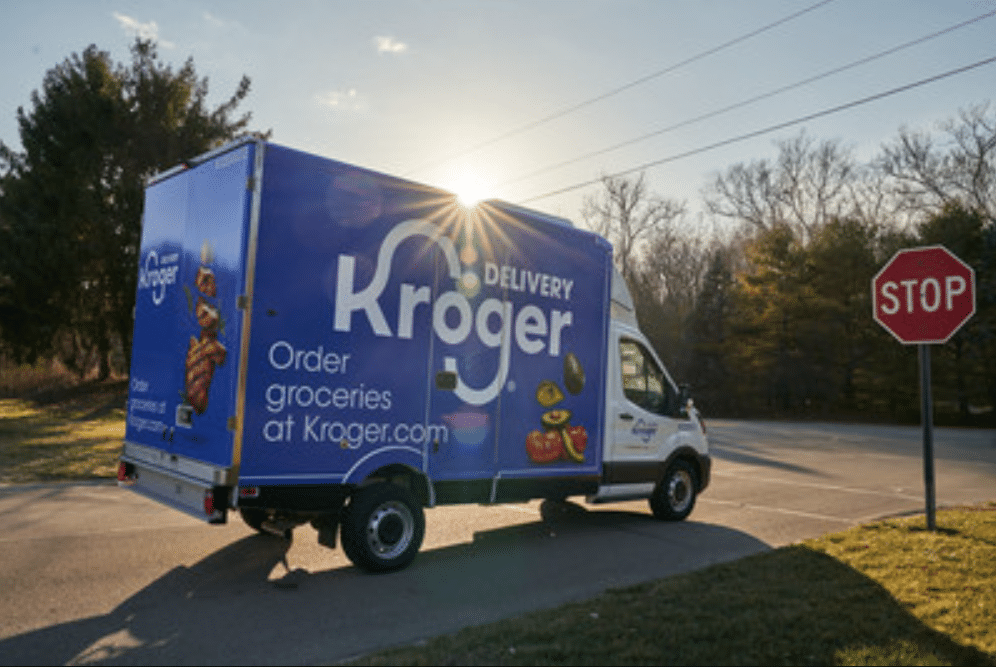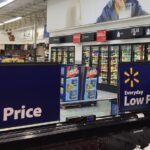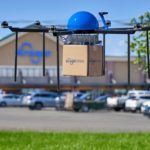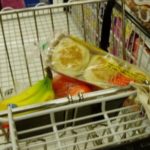
Kroger doesn’t have any stores in Texas outside of the Dallas and Houston areas, and it doesn’t have any stores in Florida, save for a single Harris Teeter a stone’s throw away from the Georgia border. But that hasn’t stopped the retailer from trying to gain a national foothold by building warehouses and offering grocery delivery in those states where it has few physical stores.
But it appears local shoppers aren’t too interested.
Kroger has announced that it’s closing its delivery facilities in Austin, San Antonio and South Florida, effective in May. The San Antonio facility opened just two years ago; the others have been up and running for just about one year. But business has been anything but brisk.
“Despite our best efforts, including the support from new customers, learnings from other locations and the incredible work of our associates, these facilities did not meet the benchmarks we set for success,” Kroger said in announcing the closures.
Friday, May 24 will be the last day local shoppers can place an order for delivery the following day, and once those deliveries are done, the facilities will close for good.
The trio of affected delivery facilities are among several that Kroger has opened in recent years across the country. These three, though, are noteworthy in that they’re among the few in cities and states where Kroger has few, if any, actual stores. Others that remain open outside of Kroger’s physical footprint include a delivery facility in Oklahoma City and three others in central Florida.
Most of the delivery facilities elsewhere in the country cater to customers who are already familiar with Kroger and have one nearby. The Texas and Florida facilities, in contrast, represented Kroger’s bid to break into new markets where it doesn’t currently have stores. But appealing to shoppers in areas where Kroger has little name recognition and a lot of competition, has been easier said than done.
As a result, Kroger has paused plans to expand into other areas, like the Northeast. “We’re making progress, but we wouldn’t be to the point where we would start focusing on additional sheds until we make sure that we have a clear path on the ones we have,” Kroger CEO Rodney McMullen told investors back in September. “Right now, all the energy is focused on the ones we have, and making sure that those are where we want them to be, where they need to be and on a sustainable basis.”
For now, Kroger says it “remains committed” to offering delivery options across the country. For shoppers who did order Kroger delivery in areas where there are no Kroger stores, though, it would appear they’re now out of luck, unless they happen to be out of town. In answer to the question, “will impacted customers have any alternative means of shopping with Kroger?” Kroger answered, “unfortunately, there are no Kroger stores or Kroger Delivery options available to customers in Austin, San Antonio or South Florida. However, if a customer is traveling, we encourage them to log onto Kroger.com where they can find Kroger Delivery service areas by entering their destination zip code.”
If Kroger’s planned acquisition of Albertsons is allowed to occur, the grocery giant will own stores in many more cities and states than it currently does, inheriting plenty of existing customers to deliver to. For now, though, with the exception of Oklahoma and central Florida, it will have to be content to deliver groceries to shoppers who already have a Kroger store nearby – since shoppers who don’t, have apparently decided to get their groceries from someone else.
Image source: Kroger










